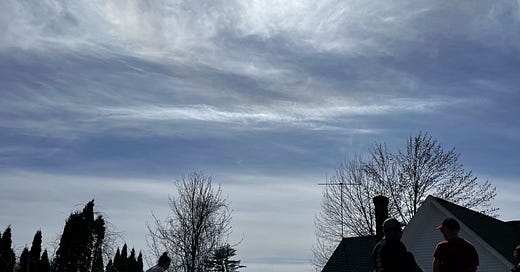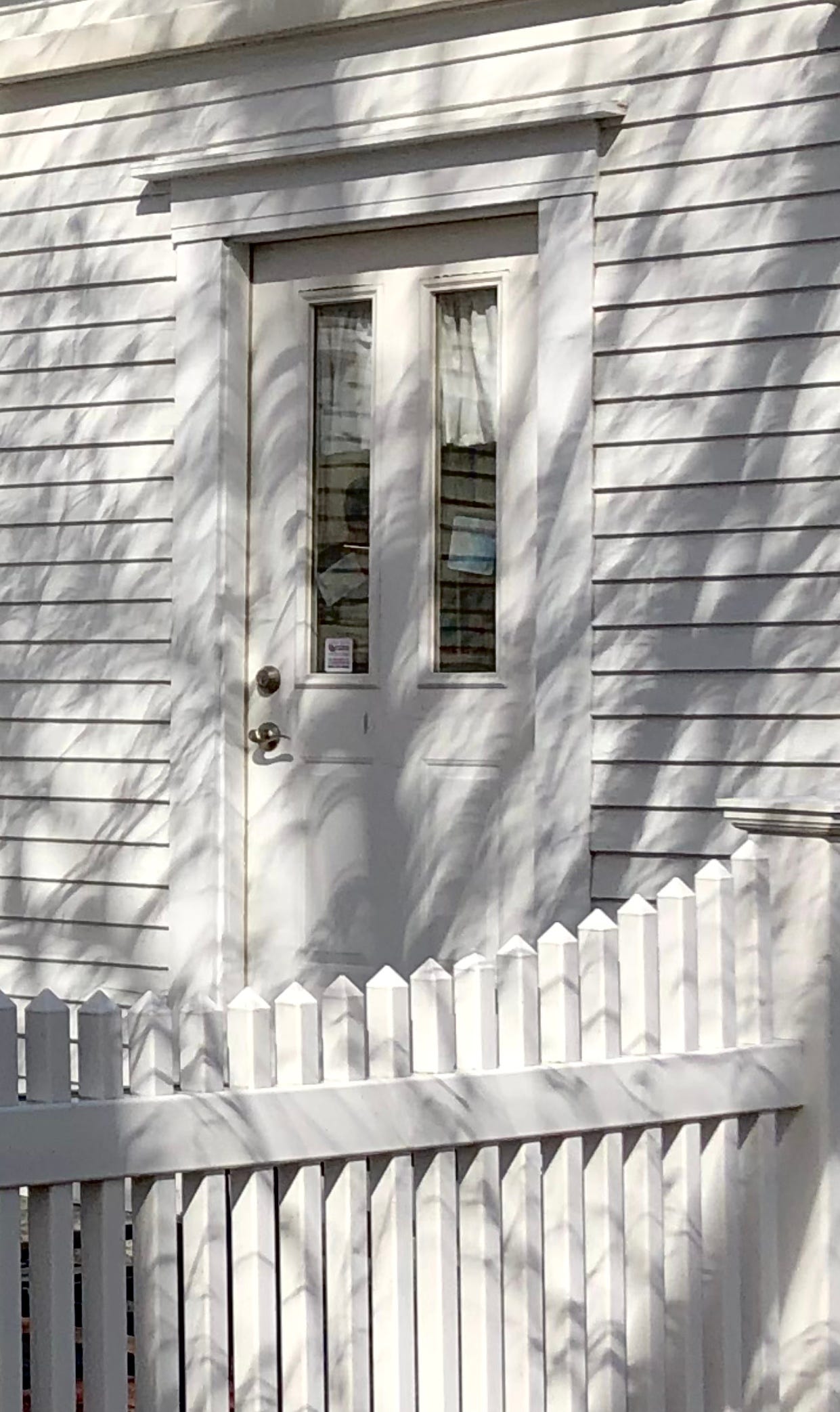“Nature” is what we see—
The Hill—the Afternoon—
Squirrel—Eclipse—the Bumble bee—
Nay—Nature is Heaven—~ Emily Dickinson
Just about 15 minutes before the eclipse over our part of the world reached its peak coverage (about 97 percent), the night-time parking lot strobe at our library clicked on.
The wind picked up a bit. Shadows grew deeper and stranger. There was… expectation.
Over the course of the last few weeks, our library had given away nearly 1,000 eclipse glasses and our little table in the parking lot where the community was gathering was nearly out of free Moon Pies.
At first, we didn’t know if anyone would come. There was no baseline for such an event for us and there won’t be another for 20 years. We had a fire truck and a musician. Our Friends group had a bake sale. Our local Audubon had a display. We had juice boxes and raffles.
We just threw everything we had at this eclipse party event, crossed our fingers and waited to see what would happen.
Three-hundred curious humans showed up!
Some popped in to get glasses. Some used the fact that the library was open on a Monday to use the check out. Some wanted a sweet treat.
The kids climbed our trees and picked at stones along the brook across the street or got soaked in the still melting snowy mud in the park behind the library. My own daughter brought her dog, who was the tiny hit of the kid set.
Some brought lawn chairs or blankets. Some used our picnic benches or porch or front steps.
The police department and fire department represented. Some welders brought welder glass to use. Our guitarist, Kenny, played “Moon Dance” and Pink Floyd.
We gathered as mere mortals - silly, fighting, clueless humans to try and grasp upwards to something so, so much bigger than us as to be nearly unfathomable.
But we tried.
The writer Jack Kornfield once said, when speaking of our place in the cosmos, that “It’s amazing to step out of the busyness of our lives, to come back to the mystery of our own existence.”
And so we did. Not everyone was impressed, of course. After all, even three percent of the Sun’s light is enough to, well, keep things lit; which when you think about it, is impressive enough.
But most waited, and snacked, and caught up on town news. The eclipse’s shadows danced on the white walls of a library building that was already 30 years old when the first recorded total solar eclipse passed over New England in 1925.
And we gathered on the grounds of a library because like an eclipse, the library offers wonder and the heartbeat of awe for our community.
At the moment of fullest Sun coverage, the fire department blared its truck horn, everyone looked to the sky one last time and slowly the Sun began to reclaim its throne. We packed up our tents and found the children and moved back into our normal lives once again, an eclipse behind us, our well-being better centered, proof that symmetry can and does exist.
In 2044, when the Sun and Moon once again take a moment to dance, our library will be here, our kids coming with their kids to play in the mud and eat snacks - a blink to the universe, a generation to us. The shadows the same, the wonder complete, the thrill intact.
It’s what we do, libraries and humans. And Suns and Moons. Don’t get used to it though, don’t take it for granted. Don’t let it be anything but magic.






Yes. For that brief time, all watching and feeling the excitement, humans were as one and not existing with anything else going on in the world.
Thank you. "Our well-being better centered." Yes. That describes my experience too.